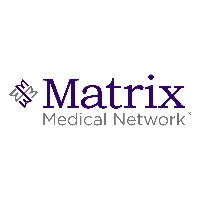 Matrix Medical Network (@MatrixMedNtwk) is one of the largest employers of nurse practitioners in the nation
Matrix Medical Network (@MatrixMedNtwk) is one of the largest employers of nurse practitioners in the nation
Ask 100 people on the street what a nurse practitioner (NP) is or does and there’s a good chance you will get 100 different answers – many of which are incorrect. Hopefully National Nurse Practitioner Week, which runs from Sunday, November 8 through Saturday, November 14, 2020 will elevate the visibility and value of NPs while also honoring them for the vital contributions they make to the health of millions of Americans.
NPs fill a unique role in healthcare. The vital role NPs play has been highlighted throughout the COVID-19 pandemic which the NP community met head-on. NPs put in long hours to man call centers, conduct telehealth visits with patients, and educate stakeholders on Centers for Disease Control and Prevention guidelines.
NPs have the knowledge and skill in combating this pandemic because they are qualified to perform many of the duties associated with physicians, such as ordering tests, making diagnoses and prescribing medications. As the supply of physicians in the U.S. continues to fall behind the demand, NPs may be asked to do more to fill that void.
The good news is there are currently 290,000 licensed NPs in the U.S., more than double the number just 10 years ago, with demand continuing to increase for the foreseeable future. And while 89% are currently involved in primary care, you will find NPs in all segments of healthcare, including hospitals, specialty physician offices, health plans, skilled nursing homes, assisted living communities, schools, cruise ships and more.
As a group, more than 99% of NPs hold advanced degrees – either a Master’s or a Doctor of Nursing Practice (DNP). NPs are so highly skilled that a review of studies by the Department of Veteran Affairs comparing outcomes of care by NPs and by primary care physicians found that outcomes in the assessed studies were generally comparable.
The profession is state-regulated, hence the scope of practice varies by state. Some states (ex: AZ, NM, ID, WA, OR to name a few) allow NPs to have full practice authority, the ability to practice without physician oversight. However, in other states, a written collaborative or supervisory agreement with a physician is legally required for practice.
Prescriptive authority refers to an NP’s authority to prescribe medications. Some states require a relationship with a physician that outlines the NP’s prescribing abilities. Some states specify whether an NP must complete a transition to practice period before being able to prescribe independently. State law in some places allows NPs to prescribe medications independently without physician oversight.
This year, during National Nurse Practitioner Week, take a little time to think about those who are filling this vital role in our country and in your local community. And if you are not one already, consider becoming one yourself. It could be the best decision of your career.
View more information on career opportunities at Matrix Medical Network.
